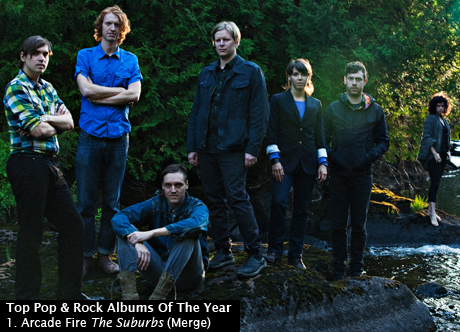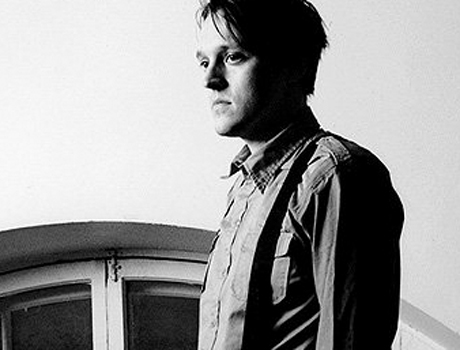tackles the double impact of arts funding cuts and city bureaucracy on communities and their public events.

Public Dreams Society’s Parade of Lost Souls is dying a slow death. Despite once drawing crowds of up to 30,000 costumed revellers, funding cuts mean organizers can only accommodate 1,500 participants this year.
Buried Alive!
It’s been 14 months since the death knell first sounded. Arts organizations that had been promised three-year gaming grants found their funds frozen and money already guaranteed by the provincial government would be pulled back.
That was just the first hint that the sky was about to fall. Following the initial shockwave, the province then threatened to cut up to 90 per cent of its arts funding (that amount has since settled at around 50 per cent).
It’s been suggested that the death of arts equals the death of communities. If this proves true, Commercial Drive looks to become the first casualty.
Small organizations like Public Dreams Society (PDS) are experiencing the one-two punch of funding cuts and City bureaucracy around large-scale gatherings in public, outdoor spaces. The result: two of PDS’s biggest events — long-standing annual community tent poles of the Commercial Drive area — have either left the neighbourhood entirely (as is the case with Illuminares, the annual lantern festival that helped reinvigorate Trout Lake in the ‘90s, which was relocated inside W2 Storyeum last year) or, experienced massive downsizing, as with the once 30,000-strong Parade of Lost Souls.
It’s all been a slap in the face for PDS, an organization that has spent almost 25 years contributing to the Drive’s transformation into one of the city’s most desirable neighbourhoods.
“[2008’s Parade of Lost Souls] was incredible,” says Laura Grieco, PDS general manager. “They shut down Commercial Drive, there were DJs up and down the street, there was an incredible street party,” she recalls. For the first time, she says, it seemed just as many people were there to watch as they were to participate. But organizers didn’t get much of a chance to imagine how the Parade of Lost Souls could continue to evolve. In 2009, having experienced the first wave of provincial funding cuts, they received a further blow from the City, a combination that forced the cancellation of last year’s parade.
“We were to the point where we were advised by the City that if we were to do another event [of the size of 2008’s Parade of Lost Souls], the costs we’d be incurring for policing — they suggested that it would be comparable to what they would allocate to the [Celebration of Light]. So, that’s huge,” Grieco says.
Muriel Honey, manager of the Film & Special Events Office, denies that the City conveyed the costs would be comparable. “Any comparison between the Parade of Lost Souls and the Celebration of Light would have been made to illustrate the range of services required,” she says. “In no way are the costs of civic services the same for these two events.”
Indeed, the costs aren’t nearly the same. While PDS would be on the hook for its policing costs, the Celebration of Light is actually City-funded. (It’s one of only two annual City-funded events — the other being the Remembrance Day ceremony.) According to a 2001 City Council report, Tourism Vancouver made a compelling argument that the Celebration of Light (then called the Symphony of Fire) become a civic event, due to substantial economic and cultural benefits to the city. Council agreed to cover the City’s services costs, provided other sponsors cover the remainder.
Almost a decade later, the City is still footing their part of the bill, which includes reimbursing the Vancouver Police Department for its policing costs. According to financial statements released to WE from the VPD, the price of policing 2010’s Celebration of Light was $604,000. In 2009, the first year the Parade of Lost Souls was forced to cancel, it was $690,000. And in 2008, when the City was desperately trying to clamp down on embarrassments like public drunkeness, homophobic assaults, and stabbings, the tally was $719,000.
Those numbers are eerily similar to the amount spent on crowd control for the Granville Entertainment District. In fact, policing the chaos of Granville Street could conceivably be seen as a twice-weekly public event, since it involves street closures, large crowds, and a heavy police presence. The cost of policing the GED (referred to as year-round “Liquor Deployment” in the VPD reports) has risen from $552, 223 in 2006 to $723,946 in 2009.
Without the benefit of municipal subsidies, this year’s Parade of Lost Souls has been officially scrapped, much to the disappointment of fans who hoped the parade could pull through despite the odds. In its place, PDS has created the smaller-scale Secret Souls Walk. Rather than taking place outdoors in Grandview Park (which is currently under construction), the Britannia gym (maximum capacity 500) will serve as a family-friendly open house for crafting. Additionally, organizers have arranged guided and self-guided tours through different neighbourhood streets, the locations of which won’t be disclosed until the evening of the event (Saturday, Oct. 30). At most, PDS estimates it will be able to accommodate 1,000-1,500 people — a far cry from the 30,000 participants who attended the event two years ago.
According to Grieco, PDS lost $35,000 in gaming and arts council money. Through additional fundraising efforts they’ve raised some of that money back, but not nearly enough to fund the Parade of Lost Souls.
“This year’s budget is under $10,000,” Grieco says, estimating that the cost of a parade the size of 2008’s would be between $50,000 and $60,000. “It would be a lot easier for us to just move on and say we’re a victim of our own success. But we have so many people who are just such hardcore supporters and it’s so distinctive to Public Dreams and so distinctive to the city. There’s so much support for it. We thought, OK, we don’t have the money, but how can we not do this? We just have to make it smaller.”
NDP MLA Spencer Chandra Herbert, Opposition critic for tourism, culture, and the arts, spent years working with arts groups on community engagement and has seen firsthand what PDS events can offer the area.
“Art sparks dialogue, debate, discussion — all those things that make communities healthy,” he says. “If you chomp away at what little funds go towards those kinds of things, it becomes increasingly difficult to get people out of their homes, or out from in front of their TVs, to talk to their neighbours, to have a laugh together. Illuminares and Parade of Lost Souls... put the arts into the hands of everybody. It’s not top down, sit and hide in a darkened room and watch. You’re actually an art maker.”
Steve Duncan, a long-time resident of Commercial Drive and founder of The Drive Is Alive blog, is also concerned about his community’s future.
“It was a shame to see Parade of Lost Souls almost disappear last year,” he says. “That had a big impact and people certainly felt a hole. Now that it’s coming back and it’s not in the same capacity, I think people really are feeling it.”
Duncan himself moved to the Drive nine years ago because of the neighbourhood’s reputation as a burgeoning arts and culture hub — a reputation built partly on organizations like PDS using outdoor public space in inventive and interesting ways.
“I think that it becomes a little bit more like Yaletown or places like that where we don’t have as much happening outside,” he says. “We don’t have as many large community events. People get turned off by going [inside]. If the weather’s good, they want to stay outside, and Halloween’s kind of traditionally an outdoor activity. I think people will start to go other places and find other things to do.”
Approximately two weeks ago, the City and PDS met for a last-ditch planning meeting. The City offered to offset policing costs after the event ends at 9pm. Despite the offer, PDS still doesn’t have the budget to pay for the policing necessary for a circa-2008 parade.
“There’s the desire there on our part and on the City’s part to keep these events going, but it is really hard without the infrastructure,” Grieco says. “When you start having that eroded by government funding being cut, it puts you on that precipice where you go the safe route rather than the more risky route.”
Commercial Drive is not the only neighbourhood at risk of losing a beloved and iconic public event. Terry Hunter, artistic producer of the Downtown Eastside’s Heart of the City Festival, (Oct. 27-Nov. 7) has also taken a wait-and-see approach.
“We’re taking it one year at a time,” he says, trying to remain hopeful that the province and the City will recognize the necessity of investing in arts in order to build thriving communities.
“Art gives people a sense of meaning, engagement, and hope,” Hunter says. “It can give them a sense of empowerment. And, it increases the livability of a community.”
That is, perhaps, the most frustrating part for neighbourhood arts groups. No one seems to want to (or know how to) factor in the intrinsic value of events like Heart of the City, Illuminares, and Parade of Lost Souls when it comes to a neighbourhood’s ability to flourish or flounder.
“We’re not to be credited wholeheartedly,” Grieco says of neighbourhood arts groups. “It’s the community that came together and really reclaimed that space. But, real estate values go up and gentrification happens, and there’s good and bad aspects of that. These kind of cultural events add value to the neighbourhood, and I don’t know if across the board that value’s being recognized by key people. I’m not convinced that everybody’s getting that clear equation.”




 YEAR IN REVIEW
YEAR IN REVIEW 

















